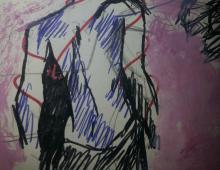April 4, 2016 - 22:32


"In telling you all of this in this way, I am resigning myself and you to the idea that parts of my telling are confounding. I care about you understanding, but I care more about concealing parts of myself from you. I don’t trust you very much. You are not always aware of how you can be dangerous to me, and this makes me dangerous to you. I am using my arm to determine the length of the gaze."
"Haunting, by contrast, is the relentless remembering and reminding that will not be appeased by settler society’s assurances of innocence and reconciliation. Haunting is both acute and general; individuals are haunted, but so are soci-eties. The United States is permanently haunted by the slavery, genocide, and violence entwined in its first, present and future days. Haunting doesn’t hope to change people’s perceptions, nor does it hope for reconciliation. Haunting lies precisely in its refusal to stop."
"I am invited to speak, but only when I speak my pain"
These quotes really stuck out to me during my reading for today. Tuck and Ree write so eloquently describes the term haunting in ways that I had never even considered before. Back when we read Eve Tuck's A Letter to Communities, there was a huge emphasis on avoiding using the damage-centered approach and in this glossary of haunting, there are amazing examples of ghosts that may damage so much more than we realize, especially in academia and the world of education. I kept thinking about the way that we teach American or U.S. history to young students, with terminology like "white man's burden" and "manifest destiny" and even if they are used in ways that show a bit of shame in the way that this country was built, it's still taught and emphasized. Colonialism is still studied in a way that is revered, and Christopher Columbus still called a hero. All of these ways of teaching are so problematic in the growing diverse education space, with students from minority backgrounds whose histories were wronged in so many ways. Their education I think must be approached with this mindset that there are ghosts that are haunting the United States. I think everyone seems to forget those ghosts, or try to cover them up so that they aren't noticed. Educators like to focus on the students' ghosts.
